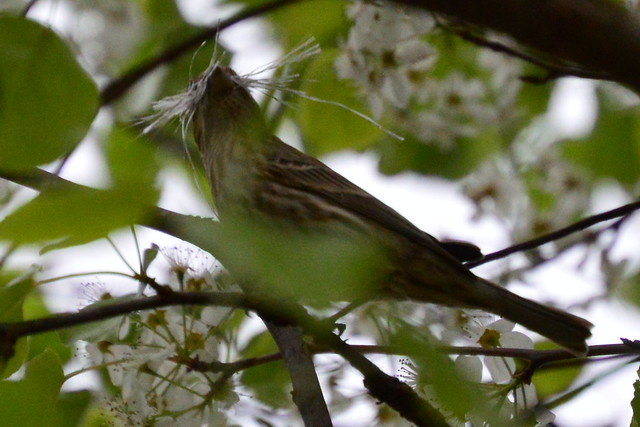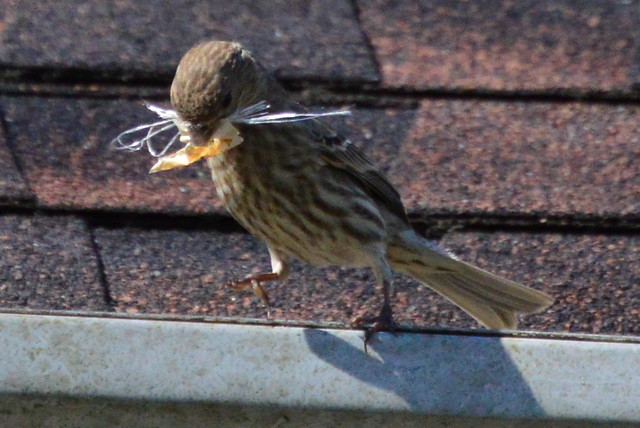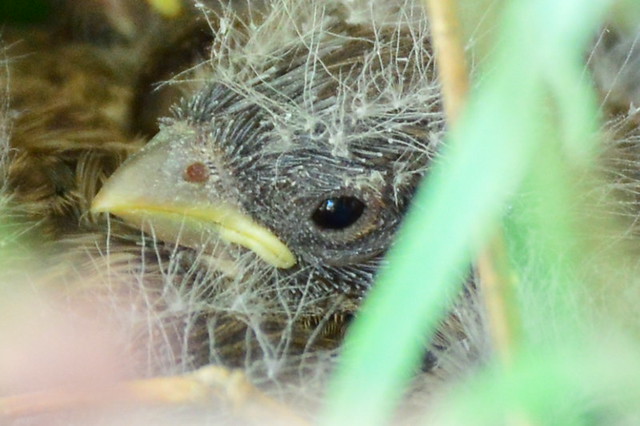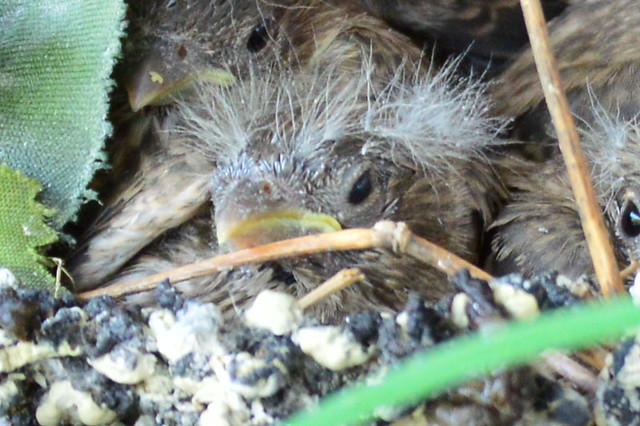One of the most common sounds of the spring are the high, melodic warbles of the house finch. House finches are becoming increasingly common, and are in fact an invasive species that are beginning to replace the purple finch.
House finches were first introduced as pets for the males' bright crimson heads and sweet songs. Pet stores imported these birds from their native habitat of California. However, once this illegal behavior was discovered, shop owners did not hesitate to release these birds into the wild. In the wild, they out-competed purple finches for food and habitat until they became a common sight in nearly every state. How can you tell which bird is which?
The purple finch's bill is conical shaped, whereas the house finch's bill is curved slightly downwards. However, this is very hard to observe from a distance, or even from reasonably close. The male purple finches have less streaking than the male house finches. While it may take some practice to discern between the two, identifying them should become easier after you see both kinds.
House finches are especially common because they thrive near humans, and often nest in door wreaths! During the mating season, males present females with gifts of regurgitated food and nesting materials. The female, however, actually builds the nest. The pair remains together, with the male defending the female. Unlike most birds who defend the nesting territory, male house finches defend the females themselves.

Female house finch with nesting material

Once the nest is built, the female lays her eggs. She lays 2 to 6 light blue speckled eggs, and incubates for 12 to 14 days. Once the chicks hatch, the mother feeds them regurgitated seeds until they leave after 11 to 19 days. The males help with this task by feeding the females while on her nest. Even after the young leave the nest, the parents continue to feed them until they find their own mates,

I saw these house finch chicks in my neighbor's door wreath!

Only two days later and wing feathers are almost developed!

No comments:
Post a Comment